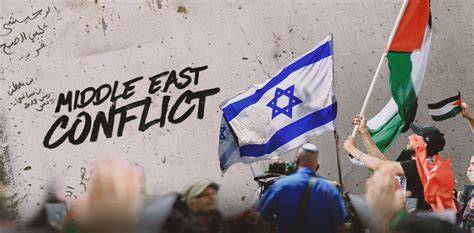The ongoing Middle Eastern conflict has prompted strong reactions from world leaders, who are urgently calling for peace, stability, and diplomatic solutions to address the escalating crisis. As violence continues to ravage the region, global governments are expressing growing concern about the humanitarian toll and the broader geopolitical consequences of the conflict.
U.S. President Joe Biden has reiterated America's commitment to peace efforts, emphasizing the importance of ensuring humanitarian aid reaches those in need. The United States has been actively engaging in diplomatic efforts with regional allies to promote dialogue and prevent further escalation. Biden also stressed his administration’s support for a two-state solution, which he believes is crucial for achieving long-term peace between Israel and Palestine.
In Europe, leaders such as German Chancellor Olaf Scholz and French President Emmanuel Macron have called for an immediate ceasefire and the protection of civilian lives. Scholz has underscored the need for stronger international cooperation to address the root causes of the conflict, while Macron has emphasized the importance of multilateral diplomacy in securing a lasting resolution. Both leaders have urged restraint and meaningful dialogue between all parties involved to prevent further bloodshed.
United Nations Secretary-General António Guterres has been particularly vocal in calling for an end to hostilities, warning that the ongoing violence could trigger a catastrophic humanitarian crisis. Guterres has stressed the necessity of adhering to international law, especially when it comes to safeguarding civilians caught in conflict zones. His appeal for an immediate ceasefire reflects growing concern about the devastating impact on the region’s most vulnerable populations.
Arab leaders from Saudi Arabia, Qatar, and Egypt have also condemned the violence and called for a halt to military actions. They have urged the international community to take stronger measures to ensure peace and have highlighted the need for increased humanitarian support for refugees and displaced individuals. These countries are particularly concerned about the growing number of civilians affected by the conflict, as well as the long-term stability of the region.
As the crisis deepens, world leaders continue to focus on diplomatic efforts to de-escalate the situation. While condemning the violence, they remain committed to finding a peaceful resolution that addresses the underlying causes of the conflict. With regional stability and global security at stake, international collaboration will be essential to prevent further escalation and mitigate the humanitarian impact of the ongoing crisis.




No comments yet
Be the first to share your thoughts!